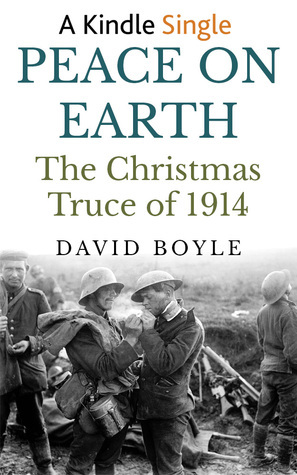
Very few events in history were as completely spontaneous, or certainly as unexpected, as the Christmas Truce of 1914. Warring nations came together to honour tradition and celebrate their shared humanity, proclaiming an unofficial ceasefire as they swapped food, sung carols, and even played football matches against one another. It is one of those very rare moments during the bloody twentieth century which provide a glimmer of light. It is in some ways the great overlooked moment of the past century – moving, hopeful and filled with possibility. But how was it viewed at the time? And why did it never successfully happen again? What risks did the men in the trenches run, how did it come about, and did it change their view of the enemy? The Christmas Truce has become a symbol of hope for human beings working together in desperate situations. But historians have argued ever since about its significance, ranging from those who believe it was an irrelevance to those for whom it was a moment of enormous significance – and part of that argument is the question of when - and why - the truce officially ended. This book is designed to tell the story of the truce to a wider audience, as a compelling narrative, stitching together first-hand accounts of the soldiers who lived through it. A hundred years on, it is still a moment that resonates with audiences around the world.
Author
David Boyle is the author of Blondel’s Song: The Capture, Imprisonment and Ransom of Richard the Lionheart, and a series of books about history, social change and the future. His book Authenticity: Brands, Fakes, Spin and the Lust for Real Life helped put the search for authenticity on the agenda as a social phenomenon. The Tyranny of Numbers and The Sum of Our Discontent predicted the backlash against the government’s target culture. Funny Money launched the time banks movement in the UK. David is an associate of the new economics foundation, the pioneering think-tank in London, and has been at the heart of the effort to introduce time banks to Britain as a critical element of public service reform - since when the movement has grown to more than 100 projects in the UK. He is also the founder of the London Time Bank network and co-founder of Time Banks UK. He writes about the future of volunteering, cities and business. His work on the future of money has also been covered in books and pamphlets like Why London Needs its own Currency (nef, 2000), Virtual Currencies (Financial Times, 2000), The Money Changers: Currency reform from Aristotle to e-cash (Earthscan, 2002) and The Little Money Book (Alastair Sawday, 2003). He has written for many national newspapers and magazines, and edited a range of magazines including Town & Country Planning and Liberal Democrat News. He is the editor of Radical Economics. He lives in Crystal Palace, in south London, with Sarah and Robin (two years old). He is a member of the Federal Policy Committee of the Liberal Democrats and he stood for Parliament in Regents Park and Kensington North in 2001.